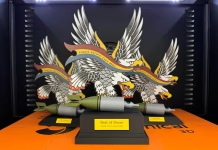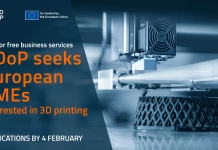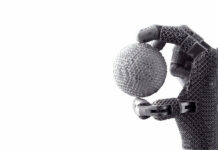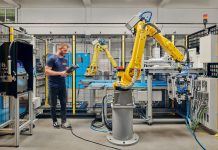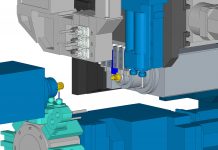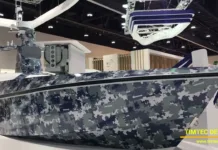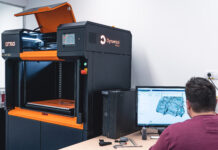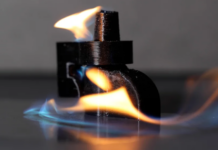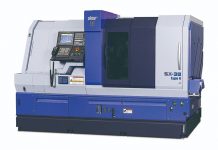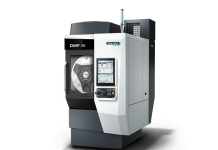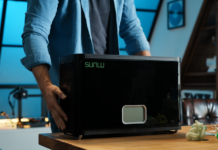A University of Surrey pupil has developed a 3D printed robot fish that’s capable of picking up harmful microplastics from lakes and rivers.
Made up of a watertight tail unit and flooded head section, student Eleanor Mackintosh’s bio-inspired bot features gills that collect and retain tiny plastic particles, while letting water run straight through them. Nicknamed ‘Gillbert,’ the salmon-sized robot has already been lab and lake-tested, and its innovative design has seen it crowned winner of the 2022 Natural Robotics Contest.
“We don’t know where the vast majority of plastic dumped into our waterways ends up,” said University of Surrey lecturer and contest creator Dr Robert Siddall. “We hope that this robo-fish and its future descendants are the first steps in the right direction to helping us to find and, eventually, control this plastic pollution problem.”
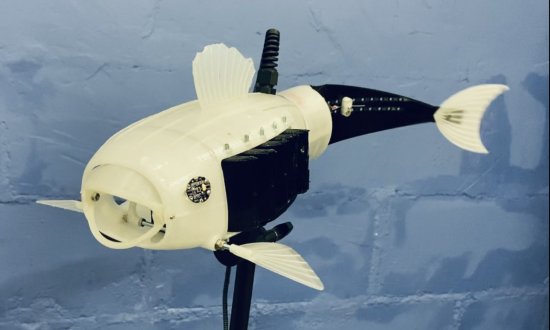
Designing an award-winning robo-fish
Mackintosh came up with her design as an entry for the Natural Robotics Contest, a University of Surrey competition that encourages the public to come up with robots capable of helping the world. Over the summer, the university received numerous entries inspired by everything from mosquitos to bears, which were then judged by an international panel.
“At the beginning of the summer we asked [entrants] to come up with designs for robots that were inspired by animals and it has been great,” explained Siddall. “It was hard to choose, but we did have to pick a winner. Our judges chose Eleanor Mackintosh’s robot fish that travels around the ocean, picking up plastics for sampling or removal purposes.”
Ultimately, the judges crowned Gillbert as their winner, due to its potential as a way of tackling the growing amount of plastic pollution in the UK’s waterways. The robo-fish itself features a set of gills on both its sides with a fine mesh between them, which enable it to sieve out plastic particles down to a size of just two millimeters.
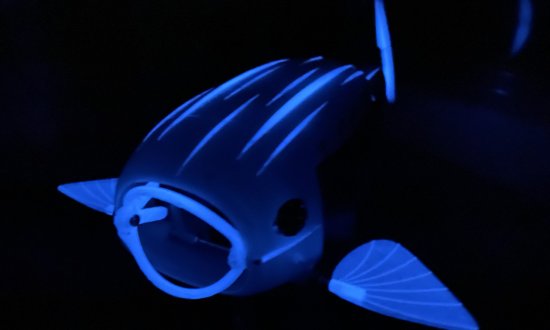
In practice, the bot is designed to open its ‘mouth’ and close its gills while gulping down water, before closing its cavity and opening its gills to filter out and retain microplastics. As the winner of the Natural Robotics Contest, Mackintosh’s design has been turned into reality in the shape of a working prototype. Brought to life with a Prusa Mini, the glow-in-the-dark fish has already proven capable of picking up tiny particles in a UK lake, but Siddall still harbors ambitions of improving on it.
“We’re pretty happy with it but there’s still some improvements to make,” said Siddall. “We’d like to make it swim a bit faster, it’s got a big draggy front so we need a bit more power in the tail and some optimization of the fins. We’d [also] like to make it a bit smarter. Right now it’s remote controlled, we want it to run on its own.”
Sidall says Gillbert is also set to be deployed in support of other robotics the university is using to trawl lakes for microplastics, albeit for the purposes of research, rather than cleaning up the water for good. Following the success of the 2022 competition, a 2023 edition is already being prepared for entries and is expected to begin early next year.

